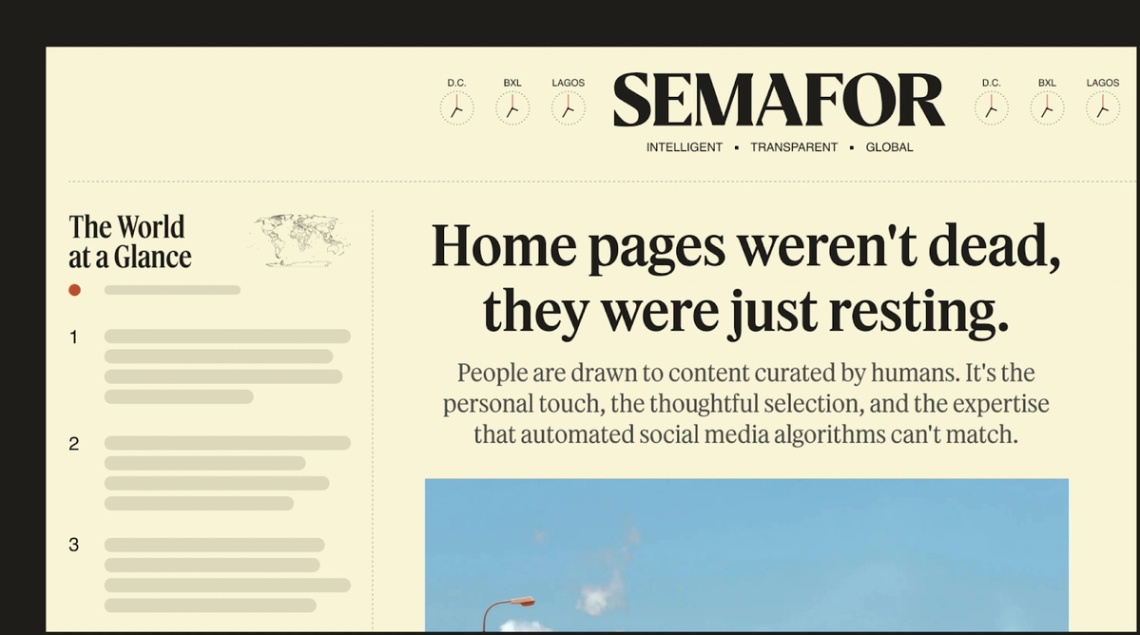 In our increasingly complex world, breaking news can’t always wait for a newsletter to arrive. We know Semafor readers are perpetually curious, and in search of globally minded, comprehensive, and, most importantly, trustworthy news to make sense of the world. That’s why we’re launching a new Semafor home page. We’ve organized our site to give you a sharp and timely view of what’s happening around the world, connecting the dots between storylines with analysis from different perspectives. You’ll enjoy fresh reporting and insight from our top reporters, and provocative coverage of global culture. And it’s all curated by our editors to distill the most important news and views as concisely as possible, unlike social algorithms designed to monopolize your time. We hope you’ll take a look and let us know what you think by replying to this email. |